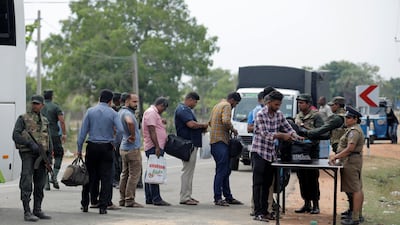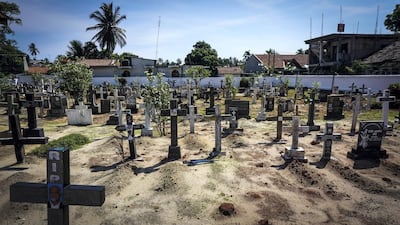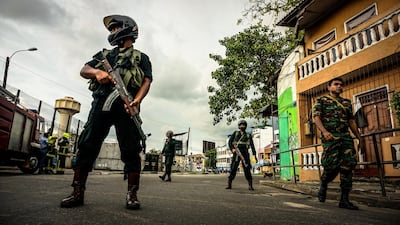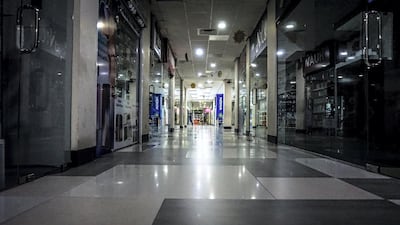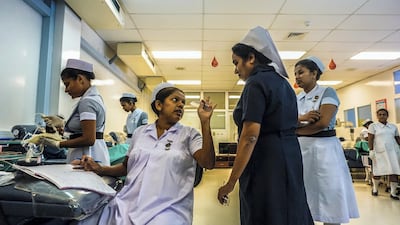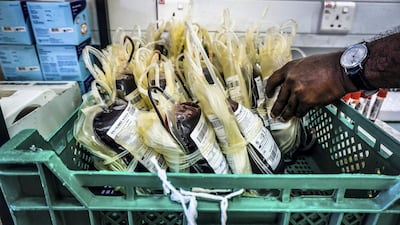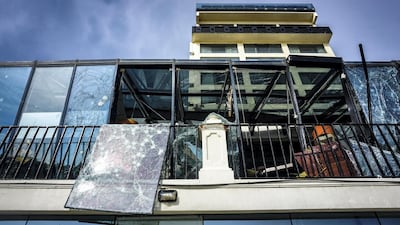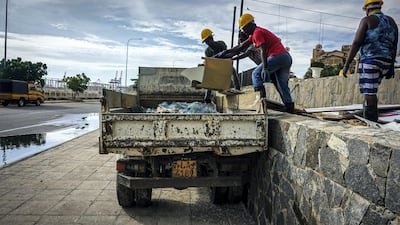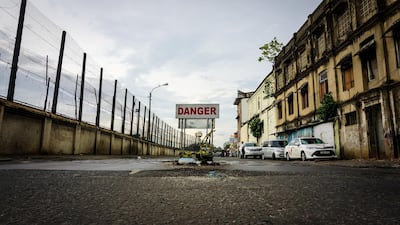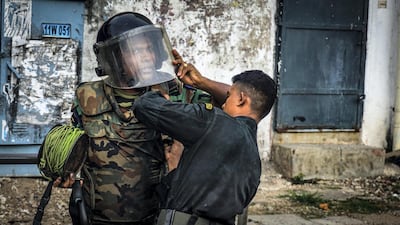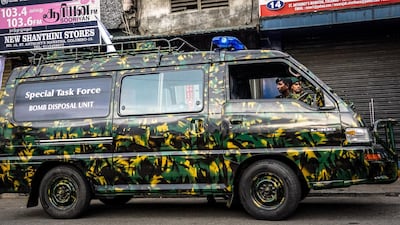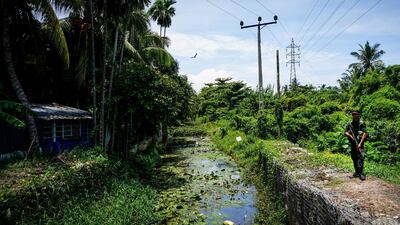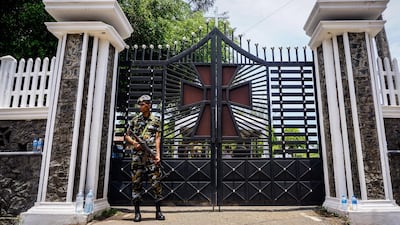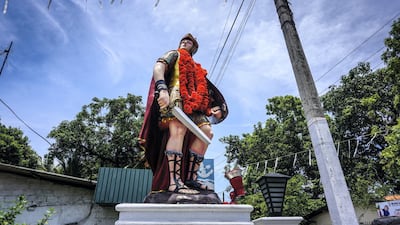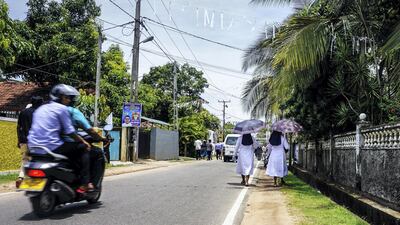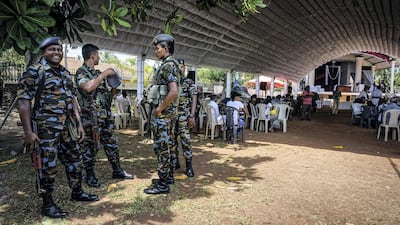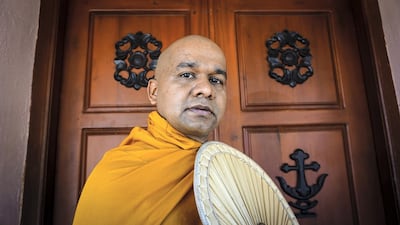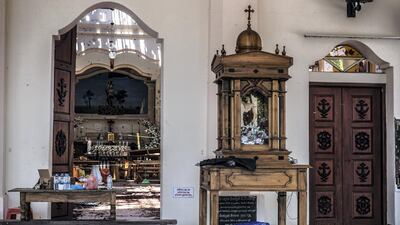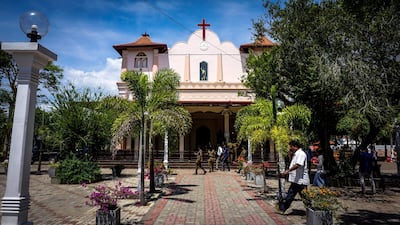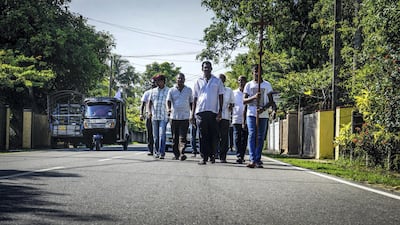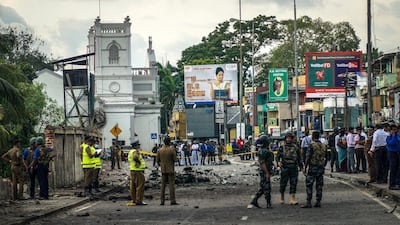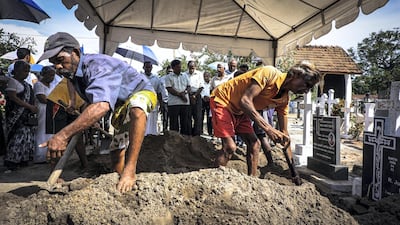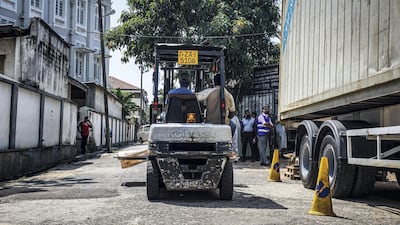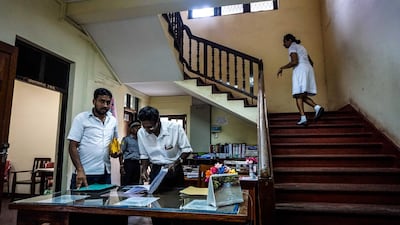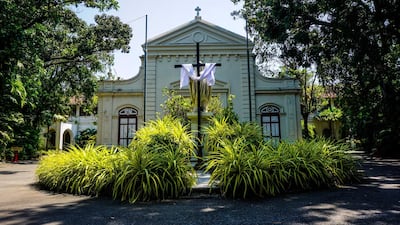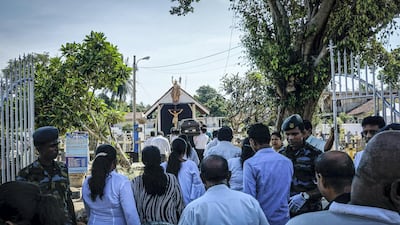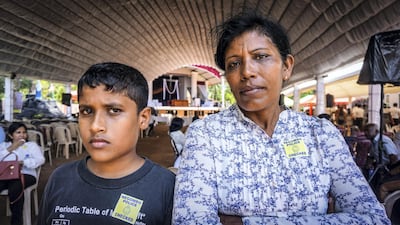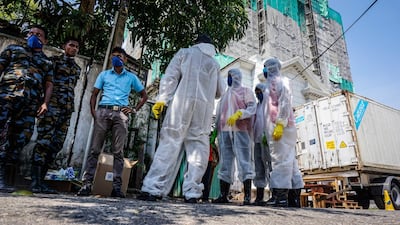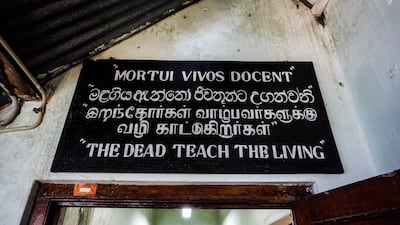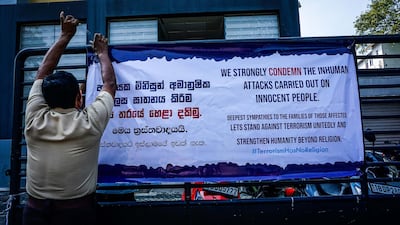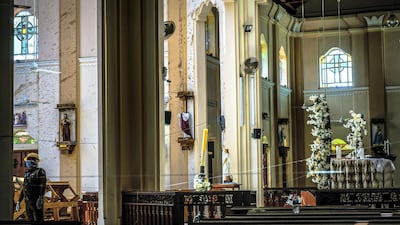ISIS has claimed the three militants who blew themselves up after a shootout with security forces in eastern Sri Lanka on Friday were members of the group.
The raid was one of several carried out by Sri Lankan security forces after the Easter Sunday bombings that killed more than 250 people and were claimed by ISIS.
ISIS said the three men opened fire with automatic weapons and after running out of ammunition, detonated their belts.
They were among 15 people, six of them children, found dead at the scene after the shootout in Ampara district.
ISIS identified the men as Abu Hammad, Abu Sufyan and Abu Al Qa'qa, but police sources and a relative of the men told Reuters they were the father and two brothers of radical preacher Zahran Hashim, who was believed to have organised the Easter attacks.
Police sources said the three men had been called for war against non-believers in a video circulating on social media.
Niyaz Sharif, brother-in-law of Zahran Hashim, identified the men as Zainee Hashim, Rilwan Hashim and their father Mohamed Hashim.
On Friday, officials confirmed that Zahran Hashim had died in the suicide bombing at the Shangri-La, one of the three hotels that were attacked along with three churches.
ISIS claimed its militants killed 17 "disbelievers" during the raid on Friday. The militants often exaggerate their claims.
The claim also carried a photograph of two men in front of an ISIS flag, one carrying a Chinese variant of the Kalashnikov rifle like the one found at the scene, and the other smiling.
A girl and a woman survived the shootout but were critically injured and being treated at a hospital, police spokesman Ruwan Gunasekara said.
A sister of Zahran Hashim said they were his wife and daughter.
"Yes, the wife and daughter were injured in the attack,” said Mohamed Mathaniya. "I was asked to come to identify them but I am not sure I can go."
Ms Mathaniya was speaking from the eastern town of Kattankudy where Zahran Hashim was based.
Armed police on Sunday launched a search of the headquarters in Kattankudy of the National Tawheed Jamaat, the group accused of the Easter bombings.
The raid came a day after President Maithripala Sirisena's office announced that he was banning the NTJ and another group linked to the bombings, Jamathei Millathu Ibraheem.
Zahran Hashim is believed to have been the leader of the NTJ or a splinter group.
Presidential spokesman Dharmasri Ekanayake said the ban, issued by decree under emergency powers, would allow the government to confiscate any property belonging to the two organisations.
The government, hurt by a long political crisis between the president and prime minister last year, promised swift action to capture militants still at large.
Mr Sirisena said about 140 people had been identified as having links to ISIS.
"A major search operation has been undertaken," he said. "Every household in the country will be checked."
Sri Lanka's Roman Catholic leader on Sunday condemned the Easter attacks as "an insult to humanity", as the country marked a week since the bombers hit.
The Archbishop of Colombo, Cardinal Malcolm Ranjith, held a private mass shown live on television after cancelling all public services amid fears of a repeat of the attacks, which killed 253 people.
But a heavily guarded vigil was held outside St Anthony's Shrine in Colombo at 8.45am, the moment the bomber struck the church last week, killing dozens of worshippers.
"What happened last Sunday is a great tragedy, an insult to humanity," Cardinal Ranjith said, urging followers to show kindness to others as a sign of respect for all the victims.
"Today during this mass we are paying attention to last Sunday's tragedy and we try to understand it.
"We pray that those who lost their lives that day have eternal life through the Lord and those who were injured will be healed soon.
"In the same way, we pray that in this country there will be peace and coexistence and understanding each other without division."
